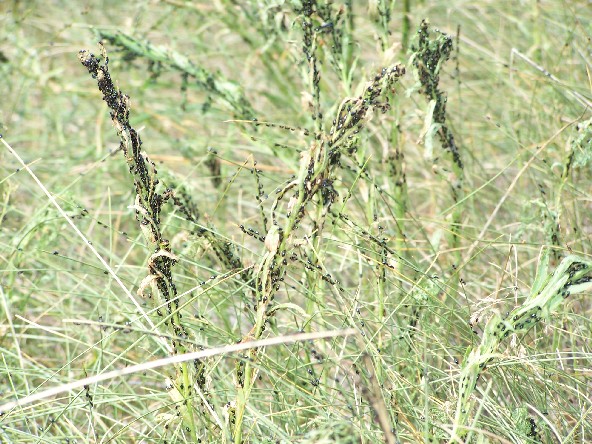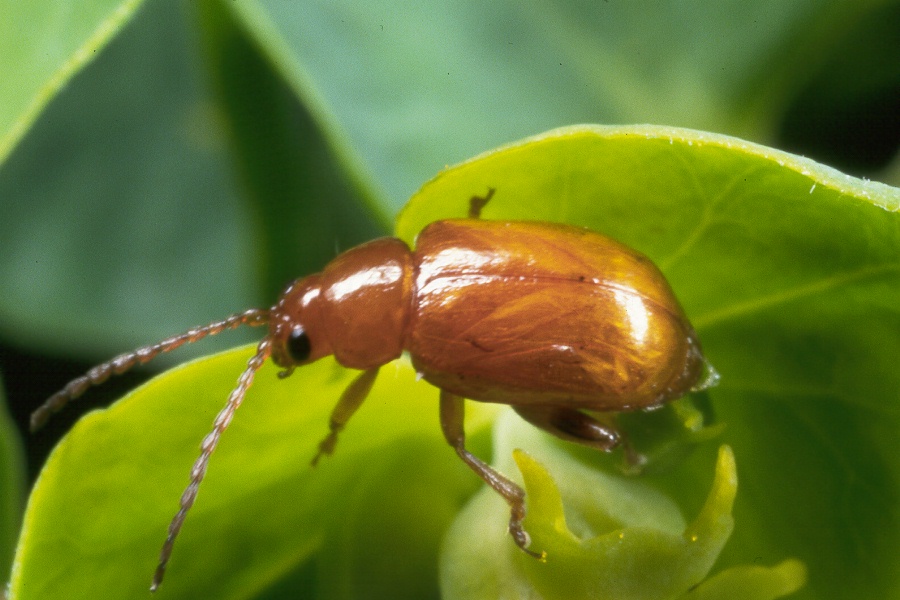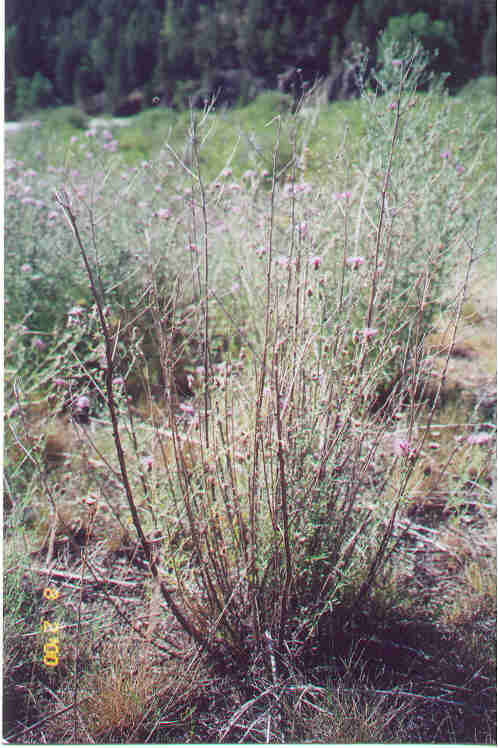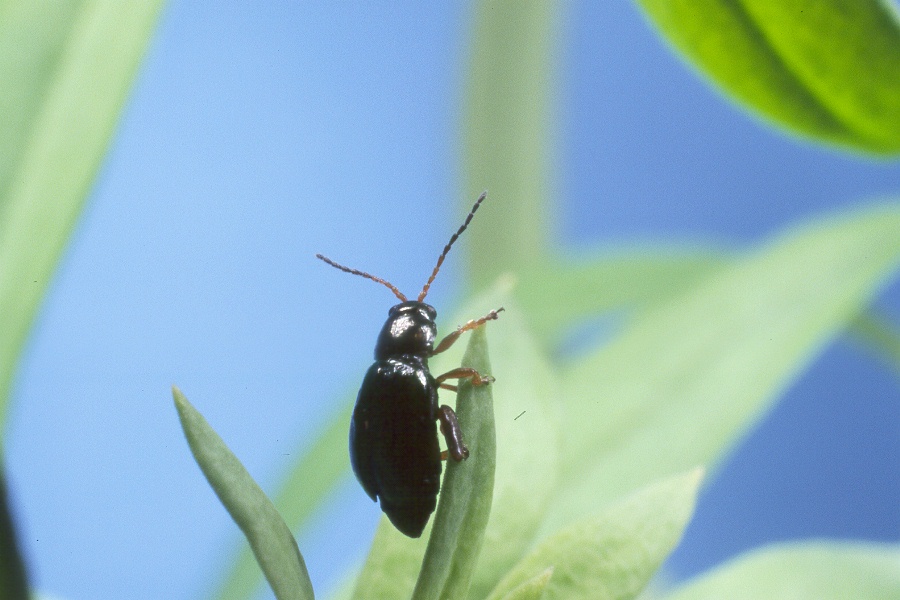Bugs
with an Attitude
2007
Biological Control of Weeds and Insectary Development Institute
2007
Biological Control of Weeds and Insectary Development Institute
WHEN: June 26-28, 2007 [Tue. - Thur.]
WHERE: Reno, NV.
WHAT: A class for teachers, weed fighters, other educators, group leaders, and others interested in starting a biological weed control program in their area.
Introduce your students to real life problems AND solutions. Be part of the solution!!
Class is free, but send in your registration ASAP. Space is limited. Please notify us of cancellations by June 9th. To receive a class brochure/registration form please email Linda Reis at: laries@fs.fed.us.
 Flea beetles (Aphthona sp.) killing the noxious weed leafy spurge.  |
 A spotted knapweed plant dying because a root boring weevil (Cyphocleonus achates) larva is feeding on the root. Note the many dead knapweed stems on the ground and the native plants starting to come back. |
 flea beetle adults |
 Cyphocleonus adult |
There will be a registration from to fill out (you may copy and past the below text into an email to Linda), here is the info you will need to know:
NAME:
POSITION: (grade level, courses taught)
MAILING ADDRESS:
PHONE #:
EMAIL:
You will be asked to check if you want continuing education credit for this class, or not. Cost: $130 for 1 credit. Bio 491.
You will be asked if you are interested in a scholarship for travel and lodging costs.
To apply for this scholarship, please mail or email us a short explanation of how you plan to integrate this into your classroom/curriculum/group/area or extracurricular activities.
Due by May 25th!!
You will also be asked to list your goals for taking this course which should include:
-Integration material into my present curriculum.
-Planning field trips with my students.
-Helps to introduce insects on noxious weeds.
-Plans to develop a local insectary on school grounds or other location.
To receive a class brochure/registration form please email Linda Reis at: laries@fs.fed.us.
BACKGROUND:
Utah, Nevada, Idaho, Wyoming, North Dakota, and Montana are seeing escalating threats from invasive and noxious weeds. Some of the weeds are species that are new to the state- others are problem weeds that continue to spread across the state on both private and public lands. Biological control, or the use of a non-native species as it would in its natural habitat, is a primary component of an integrated weed management approach to control the spread of these weeds.
In Montana, teachers and students from Whitehall High School have been working to slow the spread of noxious weeds by using biocontrol. Their model project (see: http://mtwow.org) includes insect collection, rearing biocontrol insects, and then releasing and monitoring these insects. The biological control agents identified for this class have been tested extensively prior to introduction into the United States to make sure their introduction will not harm native plants.
Because noxious weeds threaten native plant communities as well as wildlife, recreation, and healthy watersheds, the impacts from noxious weeds affect all of us, not just those with agricultural interests. Biocontrol is one tool that can be quite effective without creating the impacts that widespread use of herbicide alone may cause.
ABOUT THE INSTITUTE:
This biocontrol class will provide information about invasive weed ID, available biocontrol agents (mostly insects), and present methods for rearing, collecting, and releasing biocontrol agents. You will also learn how to use GPS/GIS to map release sites for monitoring purposes.
You will have the opportunity to spend some time in the field observing and collecting insects. A noxious weed biocontrol curriculum, correlated to national resources to help you start your own program at your school will be presented.
You will be informed about local networks, funding opportunities, and contacts that can help you with logistics, such as insectary development, and offered expertise in local specific weeds and biocontrol agents.
FACILITATORS:
Todd Breitenfeldt, Whitehall HS science teacher, Whitehall Project
Mike Battaiola, Whitehall HS/MS art/ history teacher, Whitehall Project
Joey Milan, Idaho BLM/ Idaho Dept. of Ag Carol Randall, US Forest Service.
SPONSORS:
Idaho Department of Agriculture, Idaho BLM, USDA Forest Service
To receive a class brochure/registration form please email Linda Reis at: laries@fs.fed.us.
mtwow.org HOME